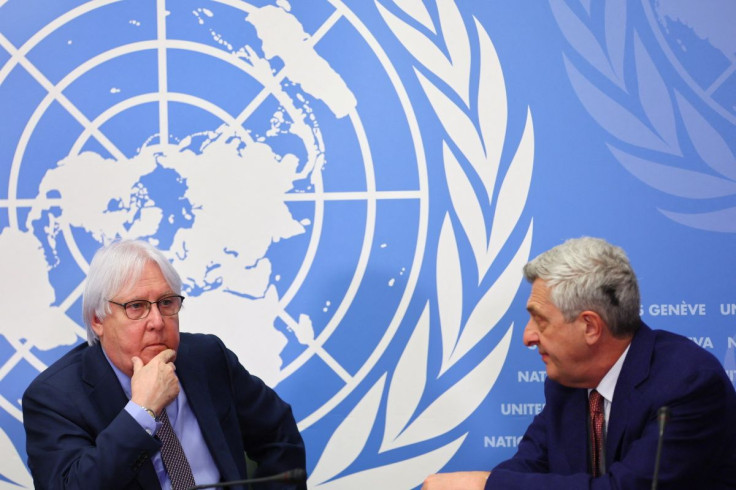UNHCR Chief Asks World Not To Forget Afghanistan During Ukraine Crisis

The dire humanitarian situation in Afghanistan should not be forgotten as the world's attention is focused on the conflict in Ukraine, the United Nation's High Commissioner for Refugees said on Tuesday ahead of a key donor conference set to take place this month.
During a visit to the Afghan capital, U.N. high commissioner Filippo Grandi said that the war in Ukraine and the ensuing refugee crisis was "rightly" the focus of global attention, but added the international community could not afford to neglect Afghanistan.
The war-torn country's economy collapsed last year and thousands fled after U.S. and other foreign forces withdrew and the Islamist Taliban took over the country.
"I thought it was important to pass the message that other situations, which also require political attention and resources should not be forgotten or neglected, especially Afghanistan," Grandi said.
Afghanistan has around 3.4 million people displaced within the country, according to U.N. figures, and around 2.6 million refugees outside the country. Thousands were evacuated from the country in the wake of the fall of Kabul to the Taliban in August.
For those left behind, the economic situation is dire with roughly 23 million people experiencing acute hunger and 95% of the population not eating enough food, according to the U.N.
Grandi said the Taliban needed to show its commitment to certain milestones including girls' education that could lead to the international community moving towards formally recognising Afghan authorities. Currently, the country's banking sector is largely frozen due to U.S.-backed sanctions, while development aid that formed the backbone of government finances has been cut off.
Grandi said he discussed these topics with Taliban officials and raised the issue of "patchy" access around the country by female U.N. workers to work outside offices in the field.
Grandi said he was concerned that the initial enthusiasm from the international community at a previous donor conference in September could be waning.
The United Kingdom is hosting a virtual pledging summit for donors this month to help garner pledges for the $4.4 billion total the U.N. has asked for Afghanistan.
"I can feel already that it is getting a bit tired and unfortunately Ukraine is going to siphon off a lot of resources," he said.
"We have to be careful, this country cannot afford a decrease in humanitarian assistance for the timebeing whilst everything else is being discussed - sanctions, frozen funds, development, capacity building - that will take time."
© Copyright Thomson Reuters 2024. All rights reserved.





















